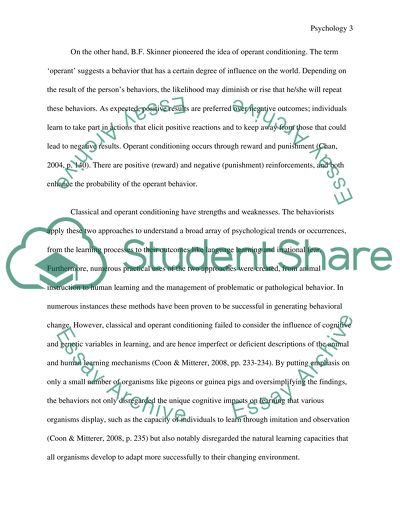Classical Vs. Operants Conditioning Essay Example | Topics and Well Written Essays - 750 words. Retrieved from https://studentshare.org/psychology/1456673-classical-vs-operant-conditioning
Classical Vs. Operants Conditioning Essay Example | Topics and Well Written Essays - 750 Words. https://studentshare.org/psychology/1456673-classical-vs-operant-conditioning.


